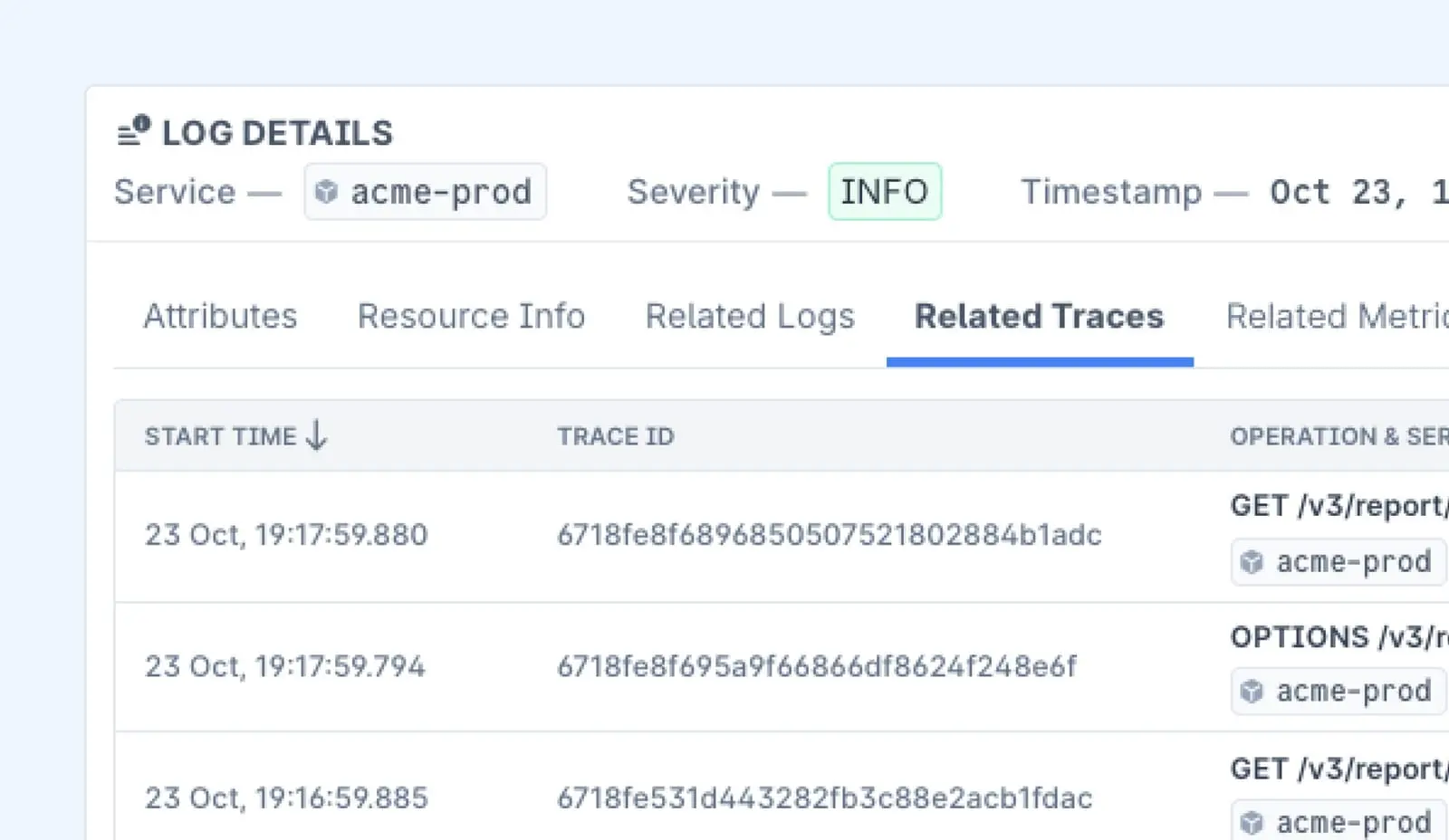Both Site Reliability Engineering (SRE) and DevOps are roles or approaches that aim to improve the reliability and efficiency of software systems. While there is some overlap between the two, there are also distinct differences in their focus and responsibilities.
What is DevOps?
DevOps is all about breaking down the barriers between the teams that write code and those that run it. DevOps brings developers and operations together as one cohesive unit, making it possible to deliver software faster, communicate more effectively, and boost overall productivity.
It's less about a strict set of principles and more about creating a cultural shift that embraces collaboration and continuous improvement.
In DevOps, you'll often hear terms like CI/CD (Continuous Integration and Continuous Delivery), automation, and Infrastructure as Code (IaC). These practices make it easier for teams to deploy new features quickly and reliably, reducing downtime and ensuring that systems remain stable in production environments.
In the end, DevOps helps organizations move fast, but it’s all about doing so without compromising on quality or reliability.
What is SRE?
Site Reliability Engineering (SRE) is the practical application of many of the principles behind DevOps but with a strong emphasis on system reliability and performance.
Originating at Google in the early 2000s, SRE takes the ideas from DevOps and "productizes" them—making reliability and availability central to the software development process.
SRE focuses on ensuring that systems are not only working but are also reliable, performant, and scalable.
This means that SRE teams are involved in everything from setting Service Level Indicators (SLIs) and Service Level Objectives (SLOs) to minimizing failure rates, managing incidents, and creating automation to reduce repetitive tasks.
It’s all about ensuring systems run smoothly, with minimal latency or disruption for end users.
While both DevOps and SRE share the goal of improving collaboration and efficiency, SRE goes a step further in making sure systems stay reliable and scalable, especially as they grow in complexity.
SRE vs DevOps: A Quick Comparison
Here’s a table capturing some of the differences between the two roles:
| Site Reliability Engineering (SRE) | DevOps |
|---|---|
| SRE is all about keeping systems reliable, available, and performing well. | DevOps focuses on making the whole software development and delivery process faster and smoother. |
| The main goal is to bridge the gap between development and operations. | DevOps is about getting developers, operations, and everyone else to work closely together. |
| SRE monitors things like system performance and uptime to make sure everything’s running smoothly. | DevOps manages the pipeline that makes software releases happen frequently and reliably. |
| SRE automates things like operations tasks, using scripts and infrastructure-as-code. | DevOps automates software development, testing, and deployment to keep everything moving quickly. |
| SRE is focused on scaling systems and making sure they run efficiently. | DevOps manages infrastructure resources and makes sure they’re set up right for development and deployment. |
| SRE works with developers to make sure software is production-ready and won’t break things. | DevOps helps different teams communicate and work together throughout the software development process. |
| SRE builds and maintains systems for monitoring, alerting, and fixing things when they go wrong. | DevOps ensures the infrastructure stays stable, and optimizes the use of cloud resources. |
| SRE looks at how systems are being used and predicts future needs for scaling. | DevOps keeps teams aligned, runs meetings, and ensures communication is flowing smoothly. |
| SRE promotes learning from mistakes with a blameless culture and post-incident reviews. | DevOps encourages teamwork, shared responsibility, and making sure everyone’s on the same page. |
| SRE is mainly about making sure systems stay reliable and available. | DevOps is all about making software delivery faster, better, and more collaborative. |
Key Responsibilities of DevOps
The key responsibilities of a DevOps engineer revolve around automating processes, improving collaboration, and ensuring systems are scalable and reliable.
Here's what DevOps engineers typically focus on:
1. Collaboration
DevOps engineers break down silos between developers and operations teams, ensuring both sides work together effectively. They foster communication and collaboration across the entire software lifecycle, from coding to deployment.
This often involves working closely with cloud engineers and other team members to ensure smooth integration and delivery.
2. Continuous Integration and Delivery (CI/CD)
DevOps engineers enable frequent and reliable software releases through automation. Tools like Jenkins, GitLab CI, and Ansible automate code integration, testing, and deployment, making the process faster, more efficient, and less error-prone.
3. Infrastructure as Code (IaC)
DevOps engineers treat infrastructure the same way developers treat code. They use tools like Terraform and Ansible to automate the setup and management of infrastructure. This approach ensures deployments are consistent, repeatable, and scalable, simplifying environment management.
4. Monitoring and Observability
DevOps engineers ensure systems are continuously monitored to prevent issues before they impact users. They track SLIs, SLOs, and SLAs, keeping key metrics like latency and failure rates within acceptable limits.
Tools like Prometheus, Grafana, and Last9 help create real-time observability dashboards, enabling quick identification and resolution of problems.
5. Automation of Repetitive Tasks
Automation is key in DevOps. Engineers automate repetitive tasks like deployments, monitoring, and scaling systems. This reduces manual intervention, allowing teams to focus on new features and innovation while keeping systems stable and operational.
6. System Performance and Scalability
DevOps engineers ensure systems can handle growing user demands, particularly in production environments. They focus on building scalable systems that grow without compromising performance. Monitoring tools help identify bottlenecks, ensuring smooth operations even as the user base expands.
7. Security Integration
Security is a top priority in DevOps. Engineers incorporate security practices from the start, ensuring code is secure before deployment. This proactive approach protects systems from vulnerabilities and keeps data safe.
8. Incident Management and Problem-Solving
When things go wrong, DevOps engineers troubleshoot and solve the problem. They often collaborate with SREs to handle incidents, minimize downtime, and perform post-incident reviews to learn from failures and improve systems for the future.
Key Responsibilities of an SRE
Site Reliability Engineering (SRE) is all about maintaining the reliability, availability, and performance of systems, especially as they scale. SREs combine software engineering principles with operations tasks, making sure systems are both functional and resilient. Here’s what an SRE typically focuses on:
1. Ensuring System Reliability
Reliability is the top priority for SREs. They monitor systems to ensure they meet Service Level Objectives (SLOs) and Service Level Indicators (SLIs). By tracking key metrics like latency, failure rates, and uptime, they make sure the system is always available and performing optimally. When issues arise, SREs are the first responders, managing incidents and minimizing disruptions.
2. Building and Maintaining Automation
SREs emphasize automation to reduce manual intervention and improve system efficiency. They use tools like Jenkins, Ansible, and custom Python scripts to automate tasks such as deployment, configuration management, and monitoring. This helps minimize human error while keeping systems scalable and reliable.
3. Managing Service-Level Objectives (SLOs) and Error Budgets
A key responsibility of an SRE is to define and manage SLOs—the target levels of service reliability. They collaborate with development teams to set realistic goals and use error budgets to determine acceptable downtime or performance degradation. When error budgets are exceeded, the focus shifts to improving reliability rather than adding new features.
4. Incident Response and Post-Incident Reviews
SREs lead the charge during incidents, identifying problems quickly, mitigating their impact, and restoring services as fast as possible. Afterward, they conduct post-incident reviews to understand the cause, prevent similar issues in the future, and improve system design and processes.
5. Scalability and Performance Tuning
SREs ensure that systems can handle growing user demands without sacrificing performance. They monitor system health, identify bottlenecks, and plan for growth. This can involve scaling infrastructure to handle more users or fine-tuning system performance to reduce latency and enhance the user experience.
6. Collaboration with Development Teams
SREs collaborate closely with developers to ensure that new features are production-ready and won’t affect system reliability. They provide guidance on designing scalable, performant, and reliable systems, ensuring a smooth transition from development to production.
7. Optimizing Operational Processes
Beyond automation, SREs work on optimizing operational processes. This can involve reducing manual tasks, improving monitoring, or refining workflows to boost efficiency. The ultimate goal is to enable faster feature deployment while maintaining system stability.
8. Monitoring and Observability
SREs are responsible for setting up and maintaining observability systems that track the health of services in real-time. They monitor key metrics, analyze logs, and create alerts to catch potential issues before they affect end users, ensuring proactive response to problems.

9. Capacity Planning
SREs anticipate future system demands to ensure infrastructure can scale as traffic increases. They forecast demand, and growth plans, and make sure the system can handle added loads without degrading performance. Proper capacity planning prevents bottlenecks and ensures scalability.
10. Security and Compliance
SREs work alongside security teams to integrate security into the reliability process. They ensure that systems are secure by design and respond quickly to incidents, minimizing any potential impact on users and systems.
Similarities Between SRE and DevOps
SRE and DevOps are like two sides of the same coin when it comes to building reliable, scalable systems.
While they might approach things a bit differently, they share a lot of common goals and can work together like a dream team.
Here’s how they’re alike:
Shared Goals
Both SRE and DevOps aim to improve software quality and reliability. Their goal is to create stable systems that can handle the fast pace of modern development while making the delivery process faster and smoother.
Collaboration is Key
Both SRE and DevOps break down traditional barriers between development and operations teams. When these teams collaborate, developers gain a better understanding of the systems they build, and operations teams get involved earlier in the process.
Automation
Both SRE and DevOps prioritize automation. Whether it’s automating the delivery pipeline in DevOps or repetitive operational tasks in SRE, the aim is to free up time for teams to focus on what really matters.
Measurement and Monitoring
You can’t improve what you don’t measure, right? Both approaches stress the importance of monitoring and tracking key metrics. While SRE focuses on SLIs (Service Level Indicators) and SLOs (Service Level Objectives) for system reliability, DevOps focuses on metrics to optimize the delivery pipeline. Both aim to understand what’s working and what’s not.
Cultural Shift
SRE and DevOps are just as much about cultural change as they are about processes. Both challenge the status quo, promoting a more collaborative, less siloed approach. SRE focuses on balancing innovation with stability, while DevOps emphasizes a culture where teams are responsible for the entire software lifecycle.
When SRE and DevOps team up, they help create systems that are not only faster to deploy but also more reliable.
Tools and Practices in SRE and DevOps
Version Control Systems (VCS)
Tools like Git and GitHub track code changes, help teams collaborate on new features and ensure code consistency across teams.
Continuous Integration/Continuous Deployment (CI/CD)
CI/CD tools like Jenkins, GitLab CI, and CircleCI automate code integration and deployment, making software releases faster and more reliable.
Monitoring and Observability
Tools like Prometheus, Grafana, Last9, and New Relic help track system performance. For deeper insights, SRE teams use distributed tracing tools like Jaeger and OpenTelemetry to resolve issues quickly.
Incident Management
Tools like PagerDuty, Opsgenie, and VictorOps alert teams to critical issues and streamline communication for quick response and escalation.
Infrastructure as Code (IaC)
Terraform, Ansible, Chef, and Puppet automate the management of infrastructure, reducing manual work and improving scalability.
Collaboration and Communication Tools
Slack, Microsoft Teams, and Zoom keep teams connected, helping them share knowledge and discuss improvements.
Automation and Configuration Management
SaltStack, Chef, and Ansible automate repetitive tasks and configuration management, eliminating human error and improving consistency.
Testing and Quality Assurance
DevOps teams use Selenium, JUnit, and TestNG for automated testing, ensuring software stability and reliability before deployment.
Service Management and Reliability
SREs use tools like ServiceNow and Jira to track incidents, monitor uptime, and ensure SLIs and SLAs are met.
Security
Tools like HashiCorp Vault, Aqua Security, and SonarQube manage security policies, detect vulnerabilities, and automate security checks throughout the development lifecycle.

Conclusion
In summary, both SRE and DevOps aim to improve software delivery and system reliability but with different focuses.
DevOps emphasizes collaboration and streamlining the development process, while SRE prioritizes system reliability, performance, and scalability.
Together, they create a balanced approach to fast, reliable software development and maintenance.
If this sounds interesting, talk to us.
Oh, also, join our Discord community to mingle with like-minded folks.
FAQs
Is SRE better than DevOps?
It's not about one being "better" than the other. While DevOps teams focus on improving collaboration between development and operations, SRE is more specialized in ensuring uptime and reliability. Both have unique roles and responsibilities, so it depends on your needs.
Can a DevOps engineer become an and SRE?
Yes, a DevOps engineer can transition into an SRE role. Since DevOps engineers already work closely with IT operations, the transition is natural. SREs, however, focus more on incident management and ensuring system reliability, while DevOps teams focus on automating CD pipelines and application development.
Who gets paid more, DevOps or SRE?
Salaries can vary based on experience and location, but generally, SREs earn slightly more. This is because the role requires specialized skills in Kubernetes, AWS, Docker, and managing outages and ensuring uptime.
Does SRE do coding?
Yes, SREs do coding, often in the context of automating IT operations and building tools for incident management. While DevOps engineers might also code for automating CD pipelines, SREs typically focus on performance and reliability.
What does SRE stand for?
SRE stands for Site Reliability Engineering.
What is the Role of a DevOps Engineer?
A DevOps engineer focuses on optimizing application development, automating CD pipelines, and improving collaboration between DevOps teams and IT operations to enhance deployment frequency and reduce lead times.
What Are SRE and DevOps?
SRE focuses on maintaining system reliability and ensuring uptime through automation and monitoring, while DevOps focuses on improving development workflows and continuous integration with a strong emphasis on collaboration and automation.
What does a site reliability engineer do?
An SRE is responsible for maintaining uptime, monitoring performance, handling incident management, and automating infrastructure tasks. They often work with technologies like Kubernetes, AWS, and Docker.
How does one become a DevOps engineer?
To become a DevOps engineer, you'll need to have strong knowledge of DevOps tools, and cloud platforms like AWS, and a solid understanding of IT operations and methodologies for automating workflows and creating efficient CD pipelines.
How do SRE vs DevOps vs Platform Engineering differ in their approach?
- SRE focuses on maintaining uptime and managing incidents, using Kubernetes, Docker, and automation tools to ensure reliability.
- DevOps teams focus on building CD pipelines and automating the development process while ensuring collaboration between development and operations.
- Platform engineering creates platforms to support the DevOps teams and streamline deployment workflows.
Are there any differences between a site reliability engineer and a software engineer at Google?
Yes, at Google, SREs focus on maintaining system reliability, uptime, and handling outages, while software engineers work primarily on application development and writing code for products. SREs also manage incident management for production systems.
What are the key differences between SRE and DevOps in terms of responsibilities and goals?
- SREs focus on uptime, reliability, and reducing incidents, often using tools like Docker, Kubernetes, and AWS.
- DevOps teams are more focused on improving application development and deployment processes, using DevOps tools and methodologies to automate workflows and improve collaboration.
What are the key differences between the responsibilities of SRE and DevOps teams?
- SREs manage system reliability, handle incident management, and ensure uptime with a focus on automation and performance.
- DevOps teams handle the continuous integration and deployment pipelines, work with IT operations, and implement automation to speed up development cycles.
What skills are required for a career in SRE compared to DevOps?
- SREs need expertise in system architecture, Kubernetes, Docker, AWS, and incident management to ensure high uptime and reliability.
- DevOps engineers need strong skills in automation, DevOps tools, and CD pipelines, along with knowledge of cloud platforms and IT operations.
What is the difference between SRE and traditional DevOps in terms of incident management?
In SRE, incident management focuses on reducing downtime and improving system uptime through proactive monitoring and automated response systems. In traditional DevOps, incident management is still important, but the primary goal is faster deployment and automation of the development process through CD pipelines.



